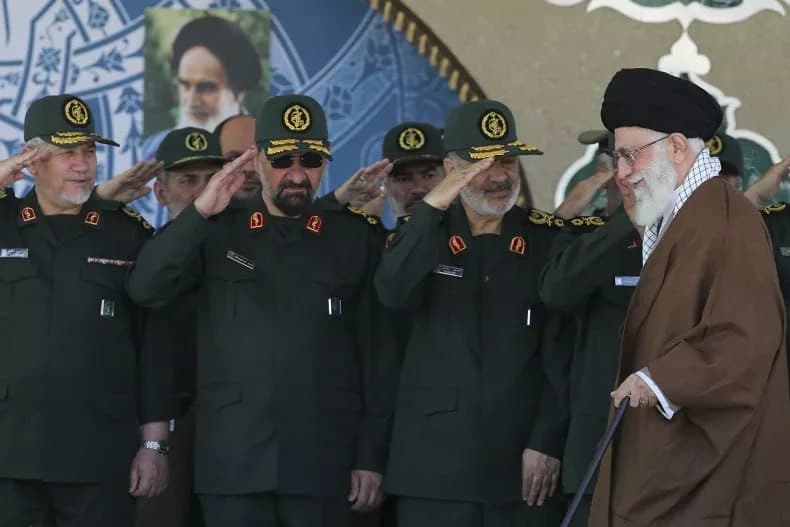Iran Warns of Imminent Conflict with Israel, Urges Military Readiness Amid Rising Tensions
In a stark warning that has heightened fears of a potential military confrontation, Iran"s senior military officials indicated on Monday that a new conflict with Israel could erupt "at any moment." This declaration comes months after a deadly 12-day confrontation in June, underscoring the fragile state of relations between the two nations.
Background & Context
The recent escalation in rhetoric reflects a longstanding and complex rivalry between Iran and Israel, characterized by proxy conflicts, military posturing, and deep-seated ideological disagreements. The conflict has roots that extend back decades, with both nations viewing each other as existential threats. Following the June clashes, which resulted in significant casualties and military engagement, tensions have remained high, particularly as geopolitical dynamics in the Middle East continue to evolve.
Yahya Rahim Safavi, a senior military adviser to Supreme Leader Ali Khamenei, emphasized the importance of military readiness in his comments to Iranian media. He stated, "We must be strong and prepared," a phrase that resonates with Iran"s ongoing military strategy which prioritizes deterrence and readiness against perceived aggressors, particularly Israel and its allies.
Key Developments
The warning from Iranian officials signals a potential shift in the regional balance of power. Safavi"s statements come amid reports of increased military drills and preparedness exercises within Iran, aimed at showcasing its defensive capabilities. This military readiness has been interpreted as a direct response to Israeli operations against Iranian interests in Syria and other parts of the region.
In recent months, Israel has intensified its airstrikes targeting Iranian military assets, asserting that it will not allow Iran to establish a permanent military foothold in Syria. This has led to escalated rhetoric from Tehran, with officials declaring that any attack will be met with a robust response. The cycle of threats and counter-threats has created an environment of heightened anxiety among both nations and their allies.
Broader Impact
The implications of a potential conflict between Iran and Israel extend far beyond their borders. For the United States and other Western nations, the situation poses significant challenges to ongoing diplomatic efforts aimed at stabilizing the region. The U.S. has historically aligned itself with Israel, providing military and financial support, while also engaging in diplomatic efforts to curtail Iran"s nuclear ambitions.
Experts warn that an outbreak of hostilities could destabilize neighboring countries and draw in global powers. As previously reported, NATO is already facing an ammunition crisis due to the ongoing conflict in Ukraine, which raises concerns about the alliance"s ability to respond effectively to multiple simultaneous threats. The geopolitical ramifications of a new conflict in the Middle East could further complicate NATO"s strategic calculations and resource allocations.
What"s Next
As tensions continue to mount, analysts are closely monitoring the situation for any signs of a military escalation. The Iranian military"s readiness drills are likely to continue, serving both as a demonstration of strength and as a deterrent against Israeli strikes. Additionally, diplomatic channels may become increasingly strained, with both sides unwilling to back down from their positions.
In the coming weeks, international observers will be looking for any signs of negotiation or mediation efforts, particularly from regional powers such as Russia and Turkey, who have vested interests in maintaining stability in the Middle East. Furthermore, the potential for further military engagements raises questions about the preparedness of regional allies and the responses of global powers, particularly the United States, as they navigate this precarious situation.


![[Video] Heavy clashes and gunfire reported in Baghdad, Iraq](/_next/image?url=%2Fapi%2Fimage%2Fthumbnails%2Fthumbnail-1768342239932-848qsh-thumbnail.jpg&w=3840&q=75)




![[Video] Gunfire between Iraqi security forces and Sadr militias in Baghdad](/_next/image?url=%2Fapi%2Fimage%2Fthumbnails%2Fthumbnail-1768343508874-4redb-thumbnail.jpg&w=3840&q=75)
